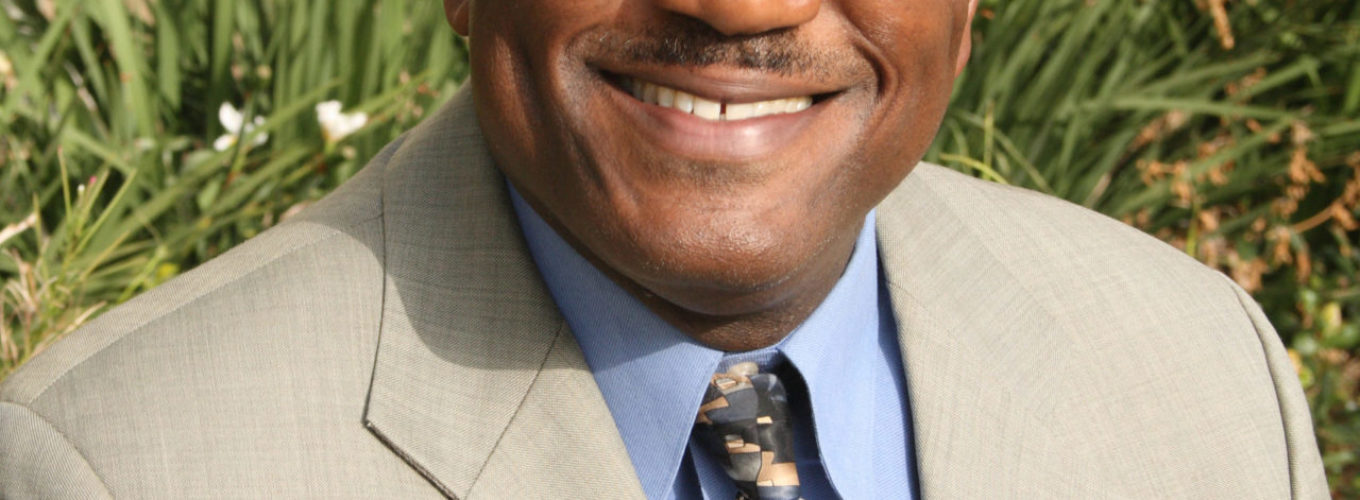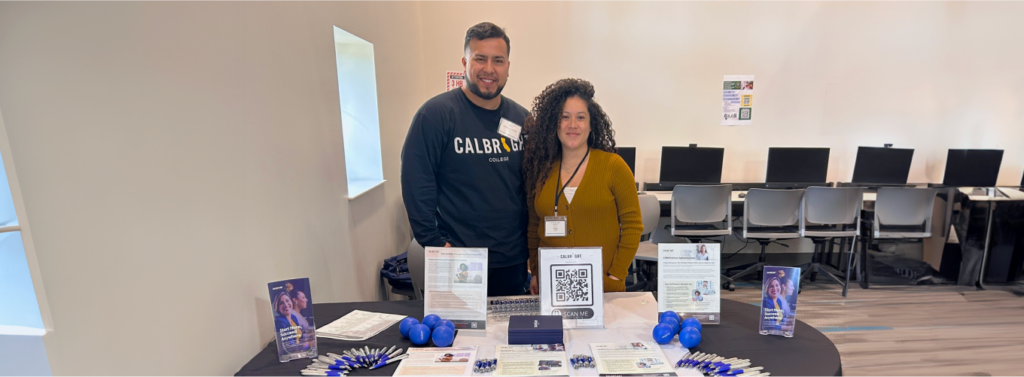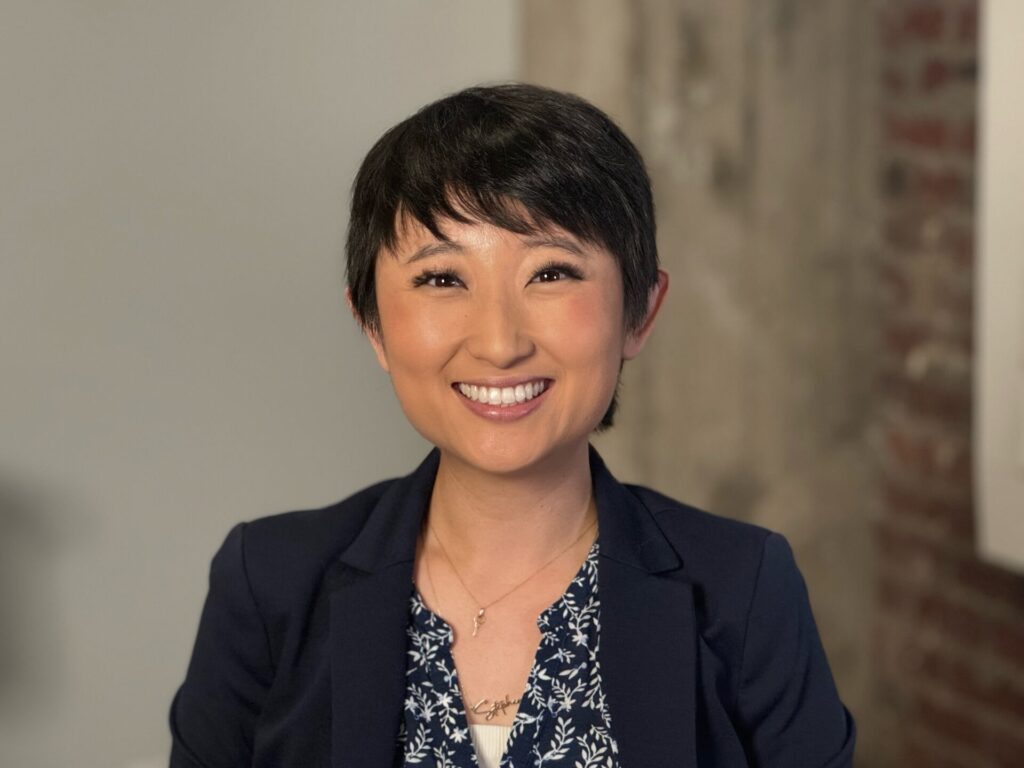Jonathan King’s life was shaped by a terrible tragedy. Growing up in Albany, Georgia, his parents were devoted to the struggle for civil rights. When he was five years old, Jonathan King was arrested along with his parents, and his mother lost her five-month pregnancy at the hands of police.
It was an awful time, but it only strengthened the family’s commitment to the struggle for justice. Jonathan went on to become part of the vanguard of desegregated schools, eventually earning his doctorate and becoming a leader in education for diverse and disenfranchised populations. Most recently, he was the Vice President of Student Services at Lake Tahoe Community College in California.
Dr. King will speak with Calbright students, faculty, and staff on Friday, Feb. 25. We were privileged to get to talk with him in advance. This is an edited transcript of our interview.
Your family and childhood were shaped by traumatic events that came out of the struggle for equal rights. How do you compare those times with the struggles today?
“There have been a lot of major changes in this deep south as a result of the sacrifices that my parents made and all of the people that were in the movement made, from Dr. King all the way down to the students, to the people who were kicked out of universities, lost their jobs. And as a kid you were looking at this wondering: ‘are we going to get through this?’ You’d never seen your parents have the same rights as white kids.
But we did get through it. Schools became integrated. Blacks began to rise all through the country. Getting into universities. Getting corporate jobs. My buddies did great things. Became doctors and lawyers. There were opportunities for African-Americans in the state of Georgia. The city of Atlanta city council became predominantly African American. We saw many of the towns in the deep south that were seriously segregated, suddenly, almost overnight, they had black mayors and things like that.
But despite all these changes, when you see the number of African American men who are being gunned down by police, it blows your mind. And you wonder: are we still at a place where we can say we’re equal to whites? And the answer is no. Unequivocally no. We are not yet equal to whites. No matter how you look at it. In every single area of life, we are still not equal. Not in healthcare. When it comes to wages, we’re not equal. When it comes to jobs, we’re not equal. When it comes to looking at our overall investments and how much we have in the economy, it’s only about 3%. We only have about 3% of the wealth.
We’ve made a lot of progress, sure. We are in a place where we never thought we’d be. We have black billionaires now. Did we have black billionaires back then? No. But it’s taken a long time for it to happen, and we still have a very long time to come for us to consider ourselves equal. I can’t wait for that to happen. I don’t think I’m going to see it in my lifetime. I could be wrong: I didn’t think you’d ever see a black president. But I think we still have a long way to go.
But we have to be proud and hopeful. A theme that runs through my talk is forgiveness. There is no way that Blacks couldn’t have come this far without forgiveness. Another theme is hope. We still have to be hopeful that we’re going to get better results in moving towards equality. And the other is love. We need unconditional love between Blacks and whites to get to this place.”
Where do you see progress happening?
“I think the work right now is in trying to bring about a true diverse and equitable community, and this is the first time in history that we’ve been able to talk about it. That’s just the most exciting thing to me. This is the first time in history where whites can now sit down with Blacks and openly discuss systemic racism. That has never, ever, happened in my world. I have lived all over the world, that has never happened.
That’s the big change that I’ve seen. If people are talking about it at this level, every day, and have to deal with it, that means the children are dealing with it. Because when I was coming up, you did not talk about race at all. Blacks and whites did not talk about race together, there was no way you could do it. Today most of us are trying to make our institutions equitable.
“So there is a sea change happening in America.”
You’ve said that “A quality education and kindness are infinitely more powerful than hate.” Can you tell us how you’ve seen that?
“Hate is an emotion that can kill you. Slowly. If I was to hold on to the hate that was initially in my heart towards the aggressors that attacked my mother, I think I would be close to being a dead man. And my mother was very graceful. I think part of this is a spiritual element. When you know that the hate that’s directed at you is misdirected, and not based on truth. When it’s based on fear, when it’s based on ignorance, then it’s better to relieve yourself of the hate that will be a thousand pound weight on your heart and mind. If you don’t let it go, it will be self-destructive. It will add to your own personal woes.”
All of the people who were saying ‘Martin Luther King was wrong, he was a communist, you’re trying to destroy our way of life, you don’t deserve these things, you’re supposed to go through the back door and drink from this nasty water fountain …’ all these things were eventually washed away.
Hate is an abomination to our being the best that we can be. We have to find a way to forgive and to treat each other equitably.”
Of all the ways that you could have worked to make the world a better place, you chose to go into education. And community colleges. Why did you make that choice?
“I never wanted to be an educator. I thought it was too boring. I really didn’t have a good educational experience when I was growing up. I went to an all black school in the first grade, and it was a bad experience. We didn’t get the best books, we didn’t get the best supplies, we didn’t get the best things. And the only time I was happy was when I was out on the playground. I still have a vision of the books I was given on the first day, and it was like they had taken them out of the trash can. That was their way of telling us what we were worth.
Then in the second grade I went to an all white school, and I was the only black student in the second grade. That was a very, very, lonely experience for someone who had been a gregarious kid. I was exiled. I was estranged from the other kids in the class. The only word I got in the whole year was the N-word. The narrative they were telling me was: we don’t want you here.
In the third grade I went to a Catholic school, and I wasn’t a Catholic so there was always an exclusion going on. I convinced my father to put me back in the black school system when I was in the 7th grade. After all of that humiliation the only way I could win the argument with my father to send me back to a black school was to tell him ‘daddy, you just want me to be a white kid.’ And as a civil rights activist, that was a real gut punch to him.
So I went back to the black school system, and what I realized was that students were just not getting the attention they needed to actually excel. It was more than a lack of resources. I realized that even though I was ahead of my class only because I’d gone to a Catholic school system, that there were other kids from the projects who could run circles around me. In science and math these kids were automatically bright, and guess what? No one was helping them to get to the next level. There were no classes for the bright kids. They were just wasting their time, going through all these grades, not getting challenged, and the only reason I could succeed was because I had middle class parents who could get me out of there when they saw I was sinking. That’s how I was prepared to be successful.
And at that point I wanted to get rich so that I could start my own school and help people who weren’t getting enough help, especially black boys.
I didn’t end up starting my own school, but I had a business degree and had been working in the music industry and then was asked to be an academic counselor, and that was the turning point. That was the best job, that was the most loveable job, I have ever had in my life. To actually be able to help students chart out what they want to do in life, and get to college, that was the turning point. I had never had such a good time in the music industry, not even going to free concerts and meeting the stars, I had never had such a good time as I did helping young people get into a college environment and actually succeed.”
Many students are traditionally disenfranchised from higher education. How can the education system better serve them?
“Honestly, I think it’s all about relationships. The students that I see that make it are the ones that have partnerships. They have people who are mentors. I strongly believe that if every student had a mentor, especially the ones that are disenfranchised and don’t have a strong set of parents to give them that kind of nurturing and good advice, I think they can succeed. I’ve seen that model work, and I am a strong believer. That is the way we’re going to turn it around.”
What advice do you have for students today who are struggling to support themselves and lift their communities up?
“I would say: if you’re in a community college, try to find a mentor. Try to join a learning community. Do not do this on your own. If you’re suffering from mental health issues, don’t be like me, who suffered while I was in college, and try to do this on your own. It takes a village to raise a child and it takes a very heartfelt college community to help you succeed. So my advice is: it might be a little daunting to ask someone to step up and be your mentor, but it’s going to make your life a lot easier. And find the learning communities that can give you support. Financially, in terms of resources. In terms of advice.”
Are you familiar with the work we’re doing at Calbright?
“I think Calbright is truly a great resource for students who want to finish quickly. Not everybody needs to go to a brick and mortar institution to get your degree. I think that the work that you’re doing is very progressive. They say California is always 10 years ahead of other states, so I’m very glad to see that California has Calbright, to help students step up and get what they need. I’m hoping with all my heart that you guys are around for the next 50 years, and serve as an inspiration to other states.”



